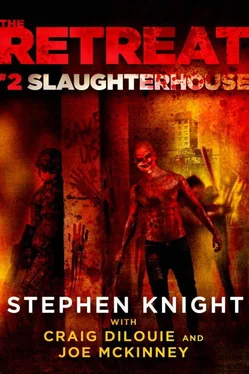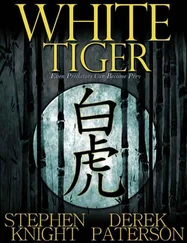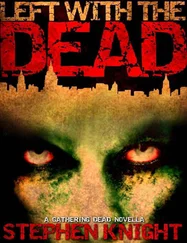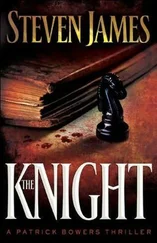“Sniper, Nomad. We’ve got red air inbound. Prepare for contact. Over.”
“Roger that, Nomad. What’s the drill? Over.”
“Stand by, Sniper. Break. Catfish, this is Nomad. Over.”
“Nomad, go for Catfish. Over.”
“Catfish, Nomad. Any orders from battalion? Over.”
“Nomad, we’ve asked. It’ll take a bit for Wizard’s direction to be relayed to us. Our guys are kind of busy right now. Uh…hold one.” The radio went silent.
There was gunfire in the distance, and a roaring motor that drew near, then faded away. Dekker examined the perimeter fence and saw nothing—no movement, no figures trying to climb over, not even a dog taking a piss.
“Nomad, this is Catfish. Report from the scout element that just refueled. Red air is a flight of four UH-1 Victor Hueys loaded with troops and weapons on hard points. Five miles and closing from the east, radial zero-eight-zero, moving at about a hundred knots. Contact in about two minutes. Still no report from Wizard or Tomcat. We have another flight of two scouts inbound, six minutes out. Two Apaches inbound as well, seven minutes out. Over.”
“Ah, roger all, Catfish. Your birds are ready to go? Over.” Dekker knew that the four UH-60s had already been preflighted then left in isolation, so no one but aircrew could board them. This way, the Black Hawks were as ready as they could be to take off on short notice. Dekker figured two minutes was probably too short, but what the hell, there was nothing anyone could do about it.
“Roger, Nomad, aircraft are ready to go. Over.”
“Catfish, get your troops out of here. We need to make sure your aircraft are safe, so get out of here. Over.”
“Nomad, this is Catfish. We haven’t received orders from Wizard yet. Over.”
“Understood, Catfish. This is my call. Save your birds. Over.”
No sooner had he given the order than he heard a turbine engine start spooling up. The captain in charge of the aviation element wasn’t going to try and dicker. The site commander had given him an order, and he was going to obey it.
“Nomad, this is Catfish. We’ll do our best. We’ll stay local. We might be able to provide some supporting fires. Listen, once the fur ball starts, you can expect every Klown in the area to want to get in on the action. Over.”
Another turbine wailed into life. Dekker looked over at the helicopter assembly area. The main rotors on two Black Hawks were already starting to turn.
“Roger that, Catfish. Feel free to skip your hover checks. We won’t tell anyone. Over.”
“You the man, Nomad.”
Another Black Hawk started cranking up. Dekker glanced back at the passenger terminal. Several people stood behind the pane glass that overlooked the jet-way apron—scruffy, unshaven men in cargo shorts and T-shirts, women in rumpled sundresses holding tote bags and dog-eared paperback books, kids with toys or comic books. The kids looked out at the helicopters and the soldiers with excitement lighting up their faces. For them, the whole thing was fun. The adults looked a little less enthused.
They saw the Army was bugging out.
Dekker wanted to help them, but there was nothing he could do. He had less than twenty-five men available since the aviation crews were pulling pitch. He didn’t know exactly how many troops a Huey could carry, but he presumed as many as a Black Hawk, which meant his elements would soon be in contact with airmobile Klowns who had numerical superiority.
His platoon had its orders. They were to secure the airport and safeguard the aviation fuel pond, and until Wizard passed on a new fragmentary order, that was what they would do. Dekker was only a first lieutenant, but the tall young officer from Denton, Texas wasn’t dumb. He wouldn’t try to maintain control over a lost objective, but he would maneuver his fires and kill as many Klowns as possible before he broke position and rolled out.
And he might be able to give the civilians watching him a bit more time.
T hrottle wide open. Engine torque and temperature gauges stuck in the red. Rotor bearings screaming from the load. Helicopter has only a few minutes of life left before the engine shuts down. So much laughter, it’s tough to keep the Huey booming along in a straight line, so that’s why they flew in a trail formation. No chance of an accident.
Flying through clouds of smoke. Below, downtown Worcester burns, its streets filled with beautifully gutted bodies, rivers of shattered glass, destroyed vehicles, mountains of debris. The city’s office buildings look like deboned monsters, reduced to nothing more than charred corpses. Clearing the smoke, the airport can be seen, its VOR still active, leading the flight of four Hueys to it like bloodhounds chasing down a strong spoor. The airport looks pristine. Untouched.
That would change.
Another aircraft appears, rising from behind the airport terminal building—a Black Hawk. It hovers for a moment, then noses over and flies away. Two more rise, hover for a moment, then turn away from the incoming helicopters.
Everyone laughs.
It’s time for some fun.
Time to kill.
“Wizard, this is Tomcat. Over.”
Lee reached for the radio handset. Traffic was opening up on the state highway with Boston falling behind, and the column was starting to make good time. They had survived every engagement with the Klowns, though not without paying for it. He had been in contact with Sergeant Major Turner, who was overseeing the recovery operations toward the rear. Turner had sent the XO and his team on their way after reporting in that they had eighteen KIA and two wounded from the Huey attack. Lee made a mental note to buy the battalion NCO more than his share of beer when they finally made it back to Drum. Because of the sergeant major, the two Hueys that had made it past the Apaches had been splashed before they could inflict even deeper wounds on the lightfighters.
“Tomcat, this is Wizard Six. Over.”
“Wizard, Tomcat. We have a tally on the second flight of Hueys. Definitely approaching the airport, and a scout unit reports they are carrying combat troops. Over.”
Oh, hell . The cavalry unit at Worcester was there to hold the fuel supplies so the helicopters could fly in and out to refuel and rearm as necessary. Establishing that as an airhead was critical to the battalion’s continued survival, as it meant the convoy could keep moving without having to pull the fuel tankers out of formation to service the thirsty helicopters. Losing the airfield would seriously degrade the effectiveness of the battalion’s top cover.
“Roger that, Tomcat. Any estimate on when they’ll arrive? Over.”
“Wizard, Tomcat. They’ll be on station in less than four minutes. Wizard, this looks like an air assault mission—we should consider sending some support their way. Over.”
“Tomcat, this is Wizard. How many attack units do you think you’ll need? Over.”
“We have two rotating in now, but they’re low on fuel—they won’t have much station time. There’s a hotel about two miles up the road. If you can have one of the tankers pull off there, we can use the parking lot to refuel two more birds and send them in to clear the airfield and keep the cavalrymen covered. We’ll still have sufficient assets to maintain top cover for the column. Over.”
Lee considered that for a moment as he went through the maps in front of him. He had zero problem with chopping some Apaches away from the column to give the cavalry troops some close air support, but he was uneasy at fragmenting the convoy further. They’d already taken some losses, and the next phase line was still several miles away. Stopping the entire convoy was out of the question, but he’d have to leave a security element with the tanker and the helicopters to keep the Klowns off them. The fact that Fleischer’s chosen landing zone was a hotel made matters a bit more complicated. The building could potentially house dozens of Klowns, and if not, then it could have dozens of civilians in need of assistance. Try as he might, Harry Lee was finding it increasingly tough to turn his back on Americans in need. Getting to Drum was a priority, but abandoning the nation was not part of his master plan.
Читать дальше












